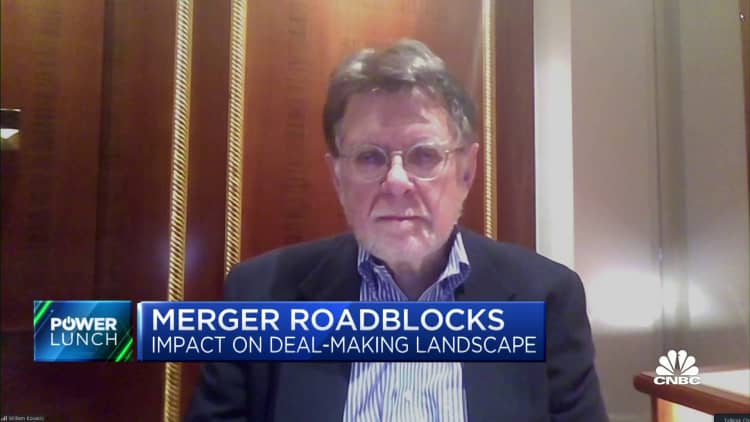People try Activision Blizzard Inc.’s ‘Call of Duty: Modern Warfare 3’ on Microsoft Corp. XBox 360 video game consoles.
Thank you for reading this post, don't forget to subscribe!Stephen Yang | Bloomberg | Getty Images
The U.K. Competition and Markets Authority’s decision to block Microsoft’s proposed acquisition of Call of Duty maker Activision means the U.S. does not need to stand alone in its challenge to the massive $69 billion deal.
In the latest hurdle for the deal, the CMA argued the acquisition threatens to hurt competition in the nascent cloud gaming market. But it did not challenge potential competition concerns in console gaming, after saying last month that evidence from industry participants convinced the agency that the transaction wouldn’t harm competition in that particular market.
related investing news
That makes the CMA’s stance a narrower one than the argument the U.S. Federal Trade Commission made in its December challenge to the deal before its internal administrative law judge. The FTC claimed the proposed acquisition would likely reduce competition or create monopolies in markets for gaming subscription services, cloud gaming and high-performance consoles.
The CMA’s decision is a mixed bag for the challenge in the U.S., in part because it did not move forward with a theory about harm to the console market, according to Daniel Francis, a law professor at New York University and former deputy director of the FTC’s Bureau of Competition. And the theory it did advance, about cloud gaming, relies on a concept of harm to future competition, of which U.S. courts may look more skeptically.
“Ultimately, the CMA seems to have chosen a path where the FTC may find it harder to follow,” Francis said in an emailed statement.
While having another major regulator also find competition issues in the deal may be encouraging for the FTC, the road ahead is still not straightforward, given the high burden on the government in antitrust cases in the U.S. and a generally different perspective on competition law.
According to Rebecca Haw Allensworth, an antitrust professor at Vanderbilt Law School, European regulators’ “willingness to look at the future and make some guesses about what the competitive environment would or will be in a few years is appropriate and something that we struggle with more in the U.S.”
While Microsoft said it remains committed to the acquisition and plans to appeal the CMA’s decision, Francis said that’s difficult to do and it’s common for parties to abandon at this stage.
Asked for comment on the CMA’s decision, the director of the FTC’s Bureau of Competition, Holly Vedova, said in a statement that the agency also has “concerns, as explained in our complaint, about the anticompetitive effects of this deal.”
Regulators for the European Union are still reviewing the transaction for competition concerns.


